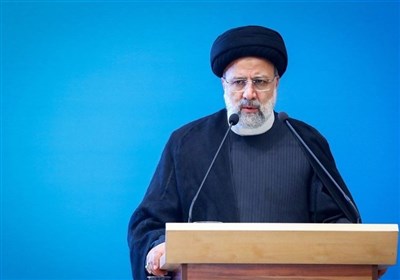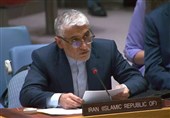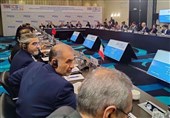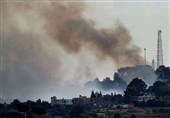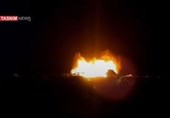Trump under Israeli-Neocon Pressure over JCPOA: US Analyst
TEHRAN (Tasnim) – An American political analyst said US President Donald Trump is at the center of an Israeli-neocon lobbying campaign as he nears a decision on the fate of the 2015 nuclear deal between Tehran and world powers.
"I expect him to withdraw from the deal. This is his pattern. Unfortunately, there are many in the US besides his political base who do not like the deal, so-called neocons, the Israel Lobby, and some in the national-security community. They have influence that is larger than their numbers. There are those in the administration—McMaster and Mattis particularly—who are not friends of Iran but may advise not withdrawing from JCPOA, because the consequences for regional security would be dire. Like the Paris Agreement, however, JCPOA is multilateral and could survive US withdrawal,” John Tirman, the executive director and principal research scientist at MIT Center for International Studies, told the Persia Digest website.
“Trump is echoing the right-wing abhorrence of the nuclear agreement. Republicans generally opposed JCPOA at the time of the negotiations. They insist that Iran is not trustworthy and that the deal is masking covert activities aimed at producing a nuclear weapon. Trump is also motivated by his hatred of all things Obama accomplished, and JCPOA is Obama’s major foreign-policy achievement. The money returned to Iran was Iran’s frozen assets, not US funds, but this distinction is intentionally blurred in right-wing discourse, especially on social media. The IRI has consistently been held in disfavor by the American public, so it’s easy politically to brand them as villainous.”
Tirman also said that there are indications that the other five major parties to the agreement will remain dedicated to the deal as long as Iran complies.
“The EU foreign minister, Federica Mogherini, has said as much, and Russia and China are unlikely to be the deal breakers in this case. It is now a UN agreement, in effect, having been endorsed by the UN Security Council. It is very much in Iran’s economic interests to remain in the JCPOA”.
Asked how the international community, especially banks, corporations, and financial institutions, might react to possible US withdrawal from the nuclear deal, he said, “Withdrawal by the US may be accompanied by sanctions that place such corporations in jeopardy. The question is whether the US can act unilaterally without deleterious consequences for American economic interests and the relations with Europe and China particularly. Europeans chafed under the previous US sanctions and they may resist them again, but exactly how that can be done is unknown. But if Iran also withdraws from JCPOA, the economic consequences for Iran will be far worse.”
US President Donald Trump's team now faces an Oct. 15 deadline to tell Congress whether it will continue to certify that Iran is compliance with the deal. If Trump refuses to certify, Congress will have 60 days to decide whether to re-impose US sanctions on Iran.
Last month, Trump, during an address before the United Nations General Assembly, said, "The Iran deal was one of the worst and most one-sided transactions the United States has ever entered into frankly that deal is an embarrassment to the United States, and I don't think you've heard the last of it”.
Iran and the Group 5+1 (Russia, China, the US, Britain, France and Germany) reached the 159-page nuclear agreement in July 2015 and implemented it in January 2016.
Since the historic deal was signed in Vienna, the International Atomic Energy Agency (IAEA) has repeatedly confirmed the Islamic Republic’s compliance with its commitments under the JCPOA, but some other parties, especially the US, have failed to live up to their undertakings.

